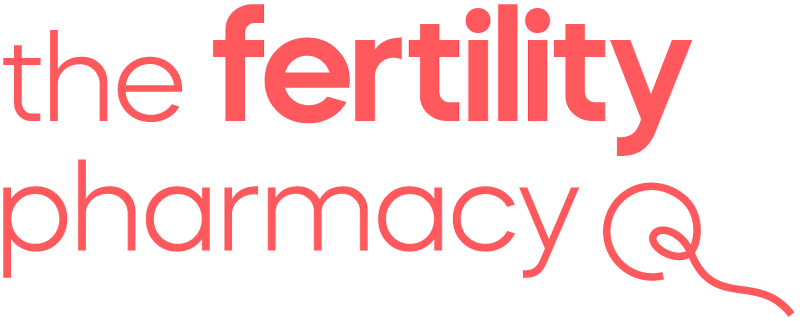For many couples who are having difficulty conceiving, fertility medications are the first step in treatment. Fertility medications work by increasing the levels of certain hormones in your body, helping to mature and release one or more eggs each month (ovulation). If you ovulate rarely or irregularly, fertility medications could help you. Fertility medications are also necessary as part of assisted conception treatments, such as IVF.
Some fertility medications are used in IVF treatment because controlling the development and release of eggs from your ovaries can improve your chance of success.
How is fertility medication used during IVF?
Fertility medications are the main course of treatment for women who are infertile due to ovulation disorders such as irregular menstrual cycles.
Many other types of medications, from aspirin and ‘the pill’ to antibiotics, are also an important part of IVF. The combination of fertility medications used in IVF works by increasing the number of eggs that are recruited at one time from the woman’s reserve of eggs.
When a woman ovulates normally, she typically recruits from her ovarian reserve a large number of eggs to develop, but only ovulates one of them. The remaining eggs that do not ovulate are absorbed by the ovary.
Fertility medications “rescue” these eggs to allow them to continue developing. The patient therefore has a greater number of eggs to fertilize. This allows the embryologist to select the very best eggs for fertilization and embryo creation in order to enhance the woman’s chance of pregnancy.
Typically, a patient begins the IVF process by taking birth control pills to prevent ovulation too early in the treatment cycle. From there, the patient will begin stimulating her ovaries using injectable medications, followed by a trigger injection to release mature eggs prior to retrieval.
Common fertility medications used during IVF
A wide number of fertility medications are used during IVF, some taken orally and others injected. The exact drug and dosage used during IVF depends on a patient’s age, test results and the stimulation protocol prescribed by the doctor and IVF clinic.
For example:
- Down regulation Drugs such as Cetrotide and Buserilin
- Follicle Stimulating Hormones such as Gonal-F, Meriofert, Bemfola and Menopur
- hcG’s such as Ovitrelle, Gonasi and Pregnyl
- Progesterone and Oestrogen such as Cyclogest and Evorel
A typical IVF treatment will involve a mix of the following medications:
Gonadotropins
These are injectable hormones used to increase development of a woman’s eggs, follicles (the sac-like structures where eggs mature) and estrogen levels prior to ovulation. Depending on the medications used, the injections contain either follicle-stimulating hormone (FSH) or both luteinizing hormone (LH) and FSH.
You will typically take gonadotropins for 7 to 12 days. A doctor will closely monitor follicle size and estrogen levels to decide if the dosing is adequate or if a woman needs to continue injections.
Side effects of gonadotropins are generally minor but may include discomfort at the injection site, headaches and fatigue.
Human chorionic gonadotropin (hCG)
An injection of hCG is used during IVF to trigger release of the mature egg(s) after a woman’s follicles have developed. Human chorionic gonadotropin is a naturally occurring chemical produced during pregnancy that is similar in function and structure to LH.
Side effects are rare but may include bloating, fatigue, mood swings or breast tenderness.
Follicle-stimulating hormone (FSH)
FSH spurs the development and growth of eggs in a woman’s ovaries. It is also sometimes used to stimulate sperm production in men. Common FSH medications include Fostimon and Gonal-F.
Gonadotropin releasing hormone (GnRH) analogs (antagonists and agonists)
These medications work by preventing premature ovulation and are typically prescribed in combination with other hormones (FSH and hCG). By delaying ovulation, GnRH analogs increase the chance of a woman producing fertile eggs and prevent the release of eggs before an egg retrieval occurs.
These medications include Bemfola, Cetrotide, Fyremadel, Orgalutran (Ganirelix), Prostap and Suprefact nasal spray.
Doxycycline
This oral antibiotic decreases the chance of a bacterial infection to both partners involved in IVF treatment. Patients take one doxycycline pill twice a day after they begin hCG injections until their prescription is complete.
Aspirin
Studies show that taking aspirin may increase circulation to the uterus and ovaries, preventing blood clots and reducing miscarriages.
Prenatal vitamins and folic acid
Maintaining a healthy level of vitamins prior to and during pregnancy greatly reduces the chance of birth defects. It is now recommended that you begin taking a multivitamin with folic acid at least a month before becoming pregnant.
Immune support – Intralipid Infusions
In addition you may be prescribed some immune support.
What is Intralipid?
Intralipid is a 20% fat emulsion that is administered intravenously. The main constituents are soya oil and egg yolk, with traces of peanut oil.
Evidence from both animal and human studies suggest that intralipid administered intravenously may enhance implantation. Intralipid is a 20% intravenous fat emulsion used routinely as a source of fat and calories for patients requiring parenteral nutrition. It is a synthetic product composed of 10% soybean oil, 1.2% egg yolk phospholipids, 2.25% glycerin and water. Intralipid infusions stimulated the immune system to remove “danger
signals” that can lead to pregnancy loss. The appeal of Intralipid lies in the fact that it is relatively inexpensive and is not a blood product.
Risks and side effects of fertility medications
Aside from the specific risks and side effects for each drug itself, the biggest risk associated with IVF medications is ovarian hyperstimulation (OHSS). This condition, in which a woman’s ovaries are overstimulated by fertility medications, causes the ovaries to produce hormones that may cause significant side effects. Most cases of OHSS are mild but some patients may experience a severe reaction.
Some women may experience medication allergies or sensitivities that involve breast tenderness, headaches, mood swings or skin issues. These often go away shortly after an injection or after taking the medication.
The advantages of IVF
There are many advantages of IVF – it has a safe track record and has been used since 1978. The advantages far outweigh the disadvantages, for example, a huge advantage is that it can usually overcome both male and female fertility.
Finally, for anyone struggling to conceive, the obvious main advantage from undertaking IVF treatment is a successful pregnancy and a healthy baby born.

